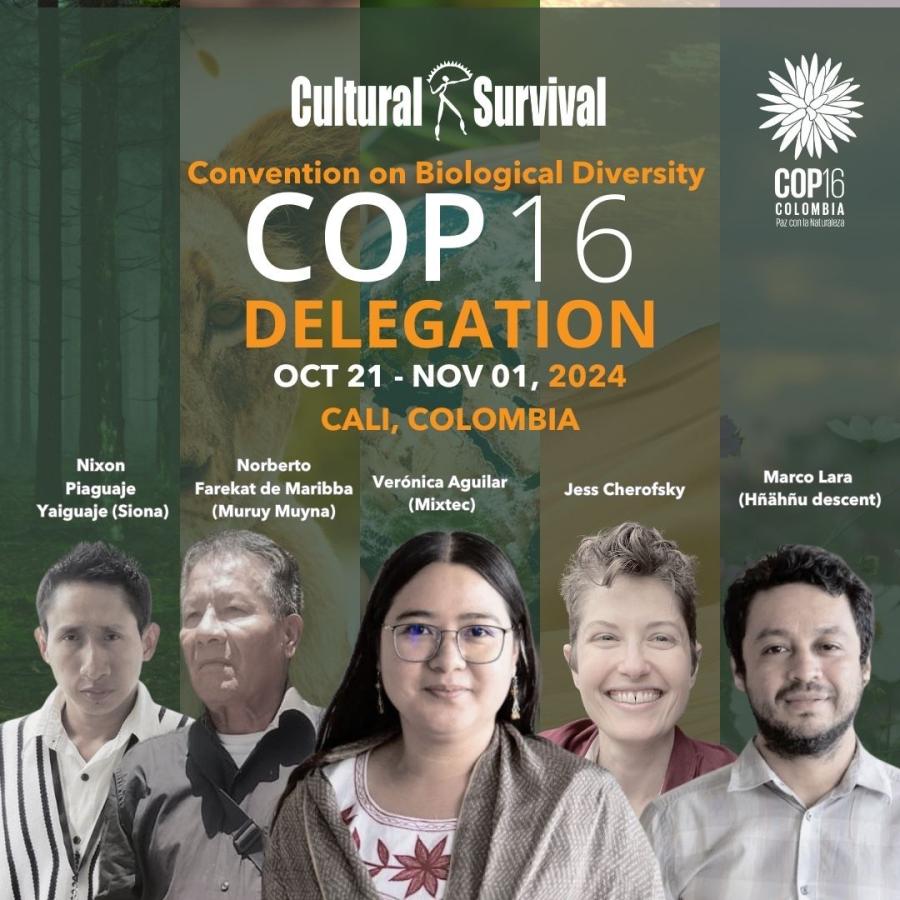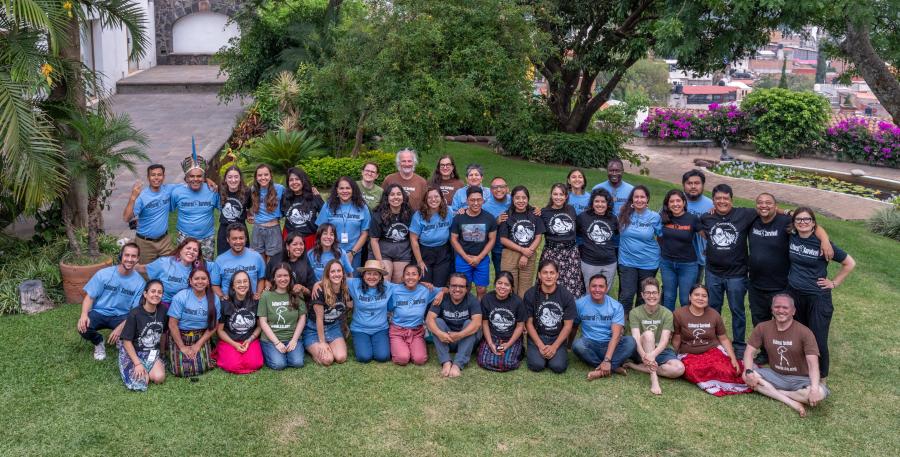Nearly 150 years ago, in 1837, a group of liberal-minded Quakers rounded the Aborigines Protection Society. In 1909, it merged with the Anti-Slavery Society. The Anti-Slavery Society can claim, therefore, that it is the oldest organization in the world concerned about indigenous peoples and championing their cause.
Over a century and a half, the broad objective of the Society has changed from that of paternalistic protection of a vulnerable and misused people to one of giving support to indigenous peoples' organizations in their struggle for self-determination. Such a change reflects a growth of consciousness among indigenous peoples and an increasing willingness to undertake political action.
However, in certain respects the approach of the Anti-Slavery Society in its work with indigenous peoples remains relatively unaltered. The Society continues to examine the manner in which western civilization impinges upon indigenous minorities to their detriment, and it also advocates a certain universal standard of human behavior. Today the Society criticizes the activities of Rio Tinto Zinc for its unwelcome exploitation of resources on indigenous land rather than the Hudson's Bay Company. In the 19th century, the opprobium of the Society was based on an Eurocentric, Christian view of ethics, while now it is more firmly founded on the international instruments elaborated in the post-war period by member states of the United Nations.
In recent years the situation of indigenous peoples has seriously deteriorated, and the proliferation of support groups in the rich countries is some testimony to these declining conditions(1). There has been growing encroachment onto the traditional homelands of indigenous minorities by outsiders to extract natural resources, such as timber and minerals, and to clear land for cattle-rearing. Many of these development projects originate or receive substantial support from the rich countries of the west. One such source of support is the World Bank, which has, for example, funded major programs in Brazil and the Philippines that will irrevocably disrupt the economic base of tribal minorities(2). Transnational corporations like the Canadian Alcan or Shell Oil have been involved in mining on Aboriginal land in Australia(3). In these instances Western corporations never get permission from and rarely compensate indigenous communities for the damage done in the name of development.
But there has been another disturbing development. Despite the universal acceptance of the rights to life and cultural integrity, more and more indigenous peoples face genocide and ethnocide. What is happening in certain parts of the world can be compared only with the violence of the invasions of the Americas in the early years of colonization. If present policies continue in countries like Guatemala, Bangladesh and Indonesia, the 4 million Mayans, the 600,000 Chakma and other tribal groups of the Chittagong Hill Tracts and the one million Papuans in Irian Jaya will cease to exist as a people(4). Furthermore, these acts of brutal internal colonization are spreading beyond international boundaries.
All the Central American republics are to some extent involved in the struggle for social justice in which the Guatemalan Indians play an increasingly important role; the fighting in the Chittagong Hill Tracts has often threatened to draw in neighboring India; the escalation of military activity in Irian Jaya, Indonesia, has sent thousands of Papuan refugees into Papua New Guinea.
On both these central issues the Anti-Slavery Society has identified two aims. First, the Society questions the suitability of the western model of development for indigenous peoples. In practice this means challenging the interventions of large corporations like Rio Tinto Zinc and multilateral banks like the World Bank or the British Commonwealth Development Corporation. Secondly, the Society seeks to uphold international law with respect to indigenous peoples. Again, in practice this requires persistent lobbying at the international level as well as national campaigning. The question for non-governmental organizations concerned with the present state of indigenous peoples is how rapidly and effectively they can mobilize support worldwide. In a number of cases that international solidarity may be literally a matter of life and death.
Footnotes
1. For example: Anthropology Resource Center (USA), Cultural Survival (USA), Gesellschaft für Bedrohte Volker (Germany), International Work Group for Indigenous Affairs (Denmark), Survival International (UK), Workgroup for Indigenous Peoples (Holland).
2. Maybury-Lewis et al., "In the Path of Polonoroeste; Endangered Peoples of Western Brazil," Cultural Survival, Occasional Paper #6, October 1981; Anti-Slavery Society, The Philippines: Authoritarian Government, Multinationals and Ancestral Lands, 1983.
3. Janine Roberts, From Massacres to Mining: The Colonization of Aboriginal Australia. CIMRA and War on Want, 1978.
4. "Death and Disorder in Guatemala," Cultural Survival Quarterly. Volume 7, Spring 1983; Anti-Slavery Society, The Chittagong Hill Tracts: Militarization. Oppression and the Hill Tribes, 1984; TAPOL, West Papua: The Obliteration of a People, 1983.
Article copyright Cultural Survival, Inc.



